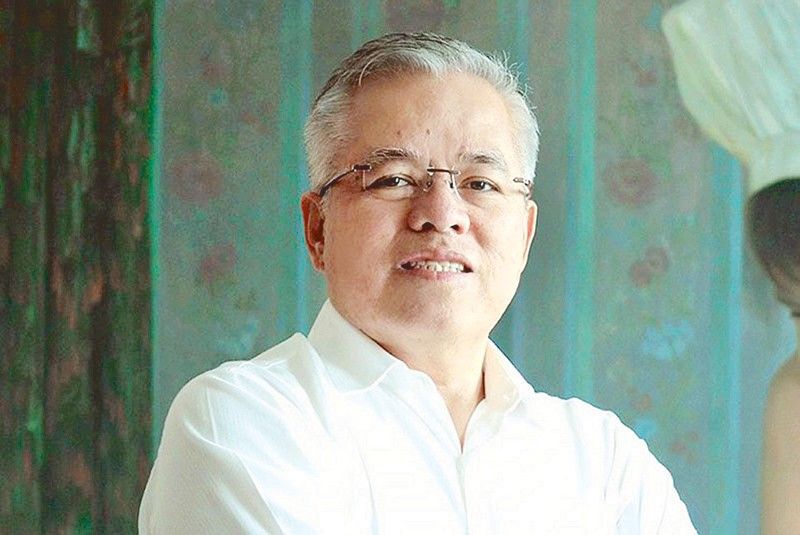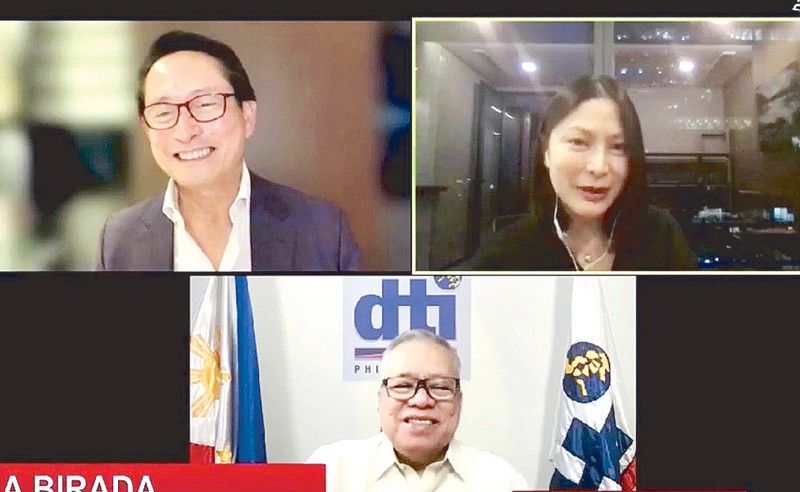The Philippines and the RCEP

The Regional Comprehensive Economic Partnership Agreement, or RCEP, is a free-trade agreement among the Asia-Pacific nations of Australia, Brunei, Cambodia, China, Indonesia, Japan, South Korea, Laos, Malaysia, Myanmar, New Zealand, the Philippines, Singapore, Thailand, and Vietnam.
It took effect on New Year’s Day, Jan. 1, of this year, for Australia, Brunei, Cambodia, China, Japan, Laos, New Zealand, Singapore, Thailand, and Vietnam, creating the world’s largest free-trade area. It also took effect on Feb. 1, 2022, for South Korea.
As for the remaining signatory states, which include the Philippines, the RCEP will enter into force and effect 60 days after the deposit of their respective instruments of ratification, acceptance, or approval to the Secretary-General of the ASEAN (Association of Southeast Asian Nations) as the depository of the RCEP Agreement.
Data by the World Bank shows that the agreement would cover 2.3 billion people, or 30 percent of the world’s population, contribute $25.8 trillion or about 30 percent of global GDP, and account for $12.7 trillion or over a quarter of global trade in goods and services, and 31 percent of global FDI inflows.
According to the ASEAN, the entry into force of the RCEP Agreement is “a manifestation of the region’s resolve to keep markets open; strengthen regional economic integration; support an open, free, fair, inclusive, and rules-based multilateral trading system; and, ultimately, contribute to global post-pandemic recovery efforts.”
It further states that “through new market access commitments and streamlined, modern rules and disciplines that facilitate trade and investment, RCEP promises to deliver new business and employment opportunities, strengthen supply chains in the region, and promote the participation of micro, small and medium enterprises into the regional value chains and production hubs.”
Negotiations for the RCEP were formally launched by the Leaders of the 10 ASEAN Member States and six ASEAN Free Trade Agreement partners at the 21st ASEAN Summit and Related Summits in Phnom Penh, Cambodia, in November 2012.
The objective of launching RCEP negotiations was to achieve a modern, comprehensive, high-quality, and mutually beneficial economic partnership agreement among the ASEAN Member States and ASEAN Free Trade Agreement partners. It was viewed as an initiative that would complement the work that was also being undertaken through other pluri-lateral negotiations such as the Trans-Pacific Partnership and multilateral forums such as the World Trade Organization.
The RCEP negotiations started in early 2013 and were concluded in 2020. The agreement itself was signed on Nov. 15, 2020.
This “mega-FTA” will promote greater openness, create a more business-friendly environment, encourage closer integration of economies, and provide a more stable and predictable, rules-based system of trade.

We recently had the head of the Department of Trade and Industry, my good friend and classmate, Secretary Mon Lopez, as guest on our radio program Kontra Birada on DZRJ 810 AM – Voice of the Philippines – and Radyo Bandido TV, together with my co-host, lawyer Karen Jimeno, to talk about the Philippine commitment and participation in the RCEP.
According to “Sec Mon,” the RCEP Agreement is another name for a Free Trade Agreement, or FTA, among the 10 ASEAN Member States plus five, that also includes other aspects beyond trade like commitments to investments, investment rules, how we can promote e-commerce, how we can protect intellectual property, how we can promote MSMEs, among others – hence, the reason why it was called “comprehensive.”
Sec Mon also mentioned that the RCEP was ASEAN-led, of course, considering that the ASEAN + 5 area was a large, free-trade area that accounted for one-third of the world’s population and one-third of the world’s gross domestic product or GDP. The region is also an important destination for foreign direct investments, or FDI.
Fifty percent of global manufacturing is in the RCEP area; hence, its high importance as a market area.
This then begged the question of how the Philippines can benefit significantly from the RCEP. According to Sec Mon, commissioned studies by noted economists have shown that the RCEP will help the country in terms of increasing the GDP and lowering the poverty incidence levels. RCEP will also strengthen our exports and our trade balance, as well as invite investments, especially when there are more markets for Philippine products.
Which is why the Department of Trade and Industry is really pushing for the passage and ratification of the RCEP Agreement before the Philippine Senate. Sec Mon mentioned that the RCEP was really a hot topic before the Senate went into recess, especially since there were agricultural groups that opposed the ratification because the agreement might affect their own output. Government has been assuring these groups that there won’t be such an impact. In fact, market access for their products would significantly improve.
I mentioned that opposition to the Philippine participation in RCEP is because, according to critics, the country is not ready to compete against the industries and products of other countries.
Sec Mon said that even without the RCEP, ASEAN States already had existing free-trade agreements with other countries. The Philippines has already been competing globally.
More than just looking at the imports, we also need to consider our export potential and prowess, and the expansion of market access and opportunities would indeed boost our agricultural production, and this can happen once we commit to the RCEP.
The trade chief emphasized that this was just one of the many benefits that we would have from the RCEP.
Other countries, especially from the 10 ASEAN Member States who already signed on to the RCEP, are already enjoying the benefits to this huge free-trade agreement. The Philippines would be left out, or even be left behind, if we do not sign on soon.
Any effort to expand global market access and opportunities for Philippine exports, as well as to increase investments into the country, should be fully supported.
We should all rally behind Secretary Mon Lopez and the Department of Trade and Industry on this.
- Latest





























